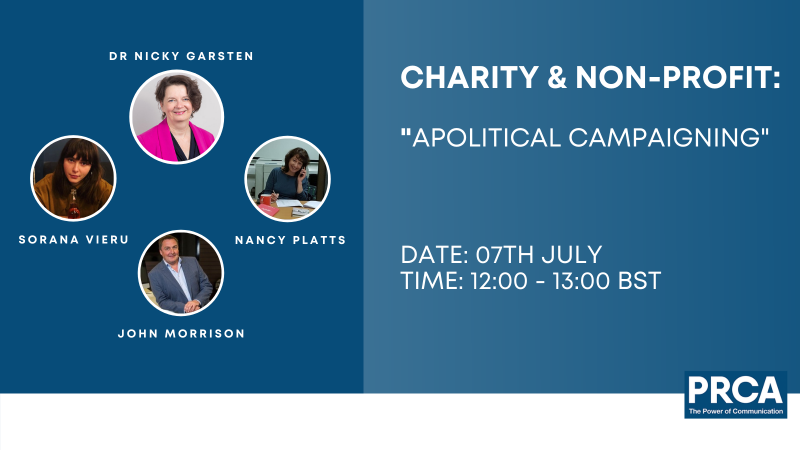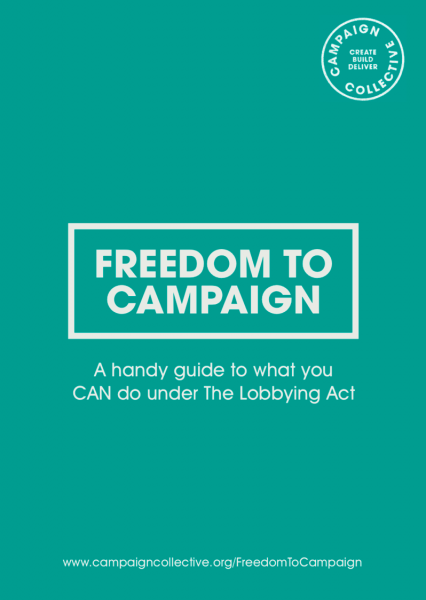
To lobby effectively across different political tribes, “Don’t walk into a room shouting” advised Nancy Platts, who is both a communications expert and a politician. She a member of Campaign Collective, a councillor, and former Leader of Brighton and Hove City Council.
Threats of public shaming can alienate and “don’t really work”, Nancy reflected. She also recommended not starting communications with “an ask”.
Instead, “create the space to make your case” within an intelligent conversation. Build relationships, provide information and do your homework on them. For example, look at politicians voting histories and what their powers actually are.
Treat politicians’ like human beings. Politicians largely go into politics to make the world a better place and see politics as a natural progression from campaigning, she reflected.
Nancy was speaking on a panel with John Morrison, Chair PRCA Public Affairs Board Scotland and Managing Director, Morrison Media; and with Sorana Vieru, Head of Campaigns and Public Affairs, Women in Prison.
The PRCA’s Charity and Non-Profit Sector Group held the meeting in July, to help charities navigate lobbying and charity acts that require charities, for instance, to campaign in a politically unaligned way. The increased regulation of charity campaigning has had what has been referred to as a “chilling effect”. This is because the perceived risks of contravening legislation can inhibit action.
The PRCA event focused on what can be done to secure change within this legislative context. Primarily, what charities can do is campaign inclusively about issues that relate to their stated purposes.
The panellists’ other advice about what to do when walking into a room without shouting included:
1. Appealing to Politicians Across the Political Spectrum
To have broad political appeal, conduct research into politicians’ policy interests. Politicians of different hues often share concerns about the same issues. Therefore, there can be more common ground than is immediately apparent. It’s the solutions that provide more points of political difference.
2. Framing Campaign Messages Carefully
Messages should be grounded in a charity’s values, advised Sorana Vieru. These values are best developed in consultation with service users and supporters, as well as staff and volunteers.
Sorana advocated using a “story sandwich”:
i) Why the issue matters
ii) The evidence for the importance of the problem
iii) What we can do to solve the issue
3. Making Briefing Notes Brief
Writing messages in succinct briefs is critical. Edit down policy documents to one or two-pages. Civil servants love policy documents.
The briefest and most valuable piece of information of all is a telephone number, advised Nancy. This is because politicians and their advisers appreciate immediate points of contact when they are preparing speeches or writing.
4. Registering Lobbying Activities
In Scotland, all charities have to register any face-to-face contact they have in virtual rooms or in real spaces, stated John Morrison. Regulative lobbying stipulations extend to social spaces. For instance, if a charity campaigner bumps into a politician in a supermarket and says, “by the way, we’re sending you an email this week”, this communication needs to be registered.
In response to UK legislation, Nancy advised communicators to make a note of the time and expenditure spent on charitable campaigning activities which target politicians. Those over £20,000 need to be declared during the 12 months before a General Election (even if you don’t know when the Election is going to take place).

5. Drawing on Guidance
Campaign Collective’s Guide, “Freedom to Campaign: A handy guide to what CAN do under The Lobbying Act” was recommended by Nancy for all campaigners. In Scotland, John Morrison advised campaigner to use the Scottish Parliament’s five step guide (pdf available online)
To hear more from our panellists please see the event’s recording here.
Dr Nicky Garsten chaired the event. She is Associate Professor of Non-Profit and Business Communications, University of Greenwich; Committee Member of the PRCA’s Charity and Non-Profit Sector Group, and Co-editor, of the Routledge book, Communicating Causes: Strategic Public Relations for the Not-Profit Sector.
